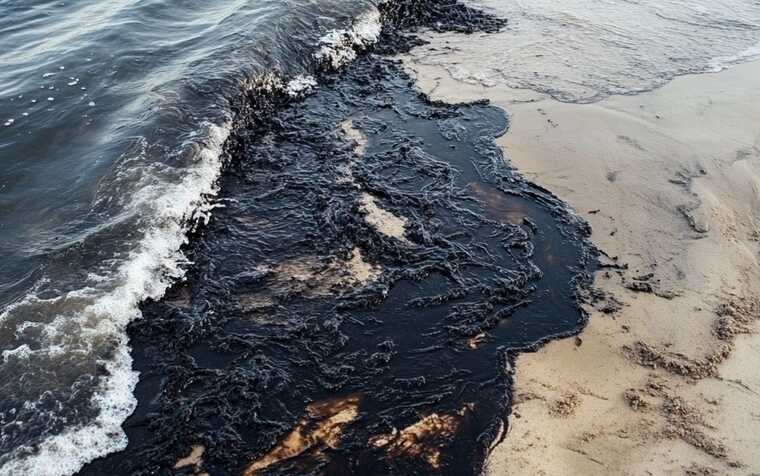
One thing we’ve learned from war is that we often fail to appreciate the simple blessings in our lives until they are taken away from us, never realizing how one fleeting moment could change everything—until it's too late.
On December 15th, 2024, as the waters of the Kerch Strait roared under the weight of severe storms, a burst of darkness shattered its fragile peace. On their way to Port Kavkaz, two Russian Volgoneft oil tankers were damaged by the brutal weather, leading to one of the largest and most devastating oil spills in history. Carrying approximately 4,900 tons of heavy fuel oil, also known as mazut, Volgoneft-212 was struck by a colossal wave that split it in two, sending massive quantities of oil into the sea. While the Kerch Strait links the Sea of Azov and the Black Sea, most of the environmental damage occurred in the Black Sea, where the spilled mazut spread rapidly. Alas, the disaster didn’t stop there: hours later, the second vessel, Volgoneft-239, also damaged by the same storm, eventually ran aground in Krasnodar Krai, Russia, leaking more mazut into the Black Sea.
The Tragedy Beneath the Waves
Underneath the surface of the Black Sea, the spill's toxic grip has wrought devastation. Toxic petroleum products from the spill cause a threat to plankton, the unseen architects of life, which are foundational to the marine food chain. The type of oil involved worsens the situation, as it tends to sink rather than float, making cleanup efforts significantly more challenging. Environmentalists caution that the resulting water pollution and sediment contamination on the seabed could lead to long-term changes in the region's biodiversity.
A Sea in Mourning
The ripple effects of this catastrophe are profound, and the sea that was once a cradle of life has now become a graveyard. Fish, stripped of their primary nourishment, face dwindling populations. Dolphins, those graceful sentinels of the sea, have met a grim fate. Many have perished, their bodies weakened by the poison seeping into their systems, their organs failing under the strain of toxic hydrocarbons. Above the waves, seabirds struggle against oil-soaked feathers, their natural insulation lost, succumbing to cold and despair.
Efforts in Action
In the wake of this disaster, emergency response teams, including the Russian Ministry of Emergency Situations (EMERCOM), deployed oil booms and skimmers to contain the spill. Specialized vessels were tasked with recovering oil from the surface, though the heavier mazut that sank presents a greater challenge.
On shore, environmental organizations and volunteers are working to save affected wildlife, including cleaning the oil-soaked seabirds and monitoring dolphins. Coastal cleanup efforts are also underway to remove oil deposits from beaches and reduce further harm to the environment.
Despite these efforts, experts warn that recovery will require sustained action, stricter regulations, and enhanced preparedness to prevent future tragedies in this fragile ecosystem. This disaster serves as a sad reminder of the irreplaceable beauty that has now been threatened by human negligence.